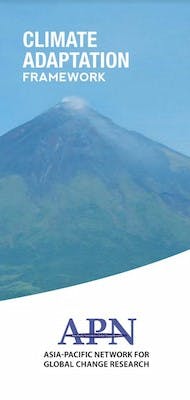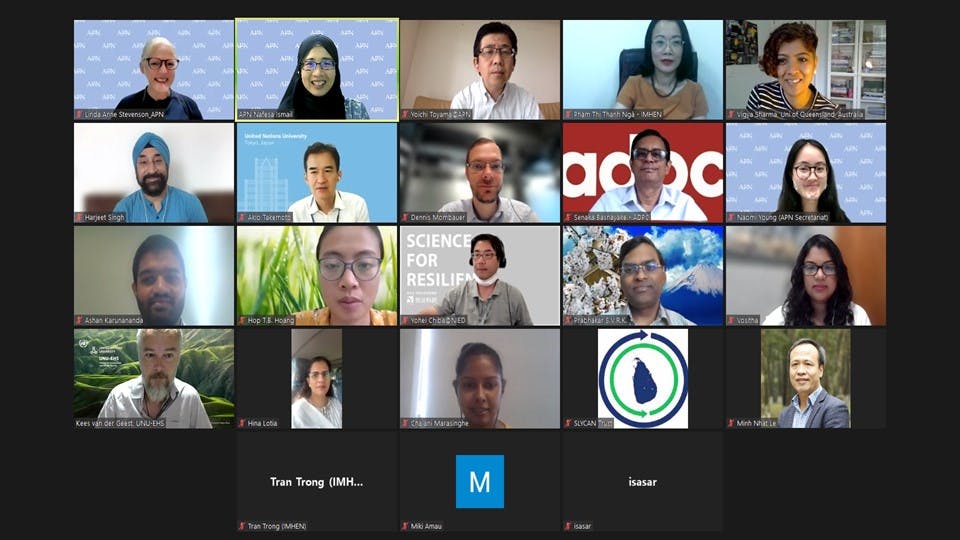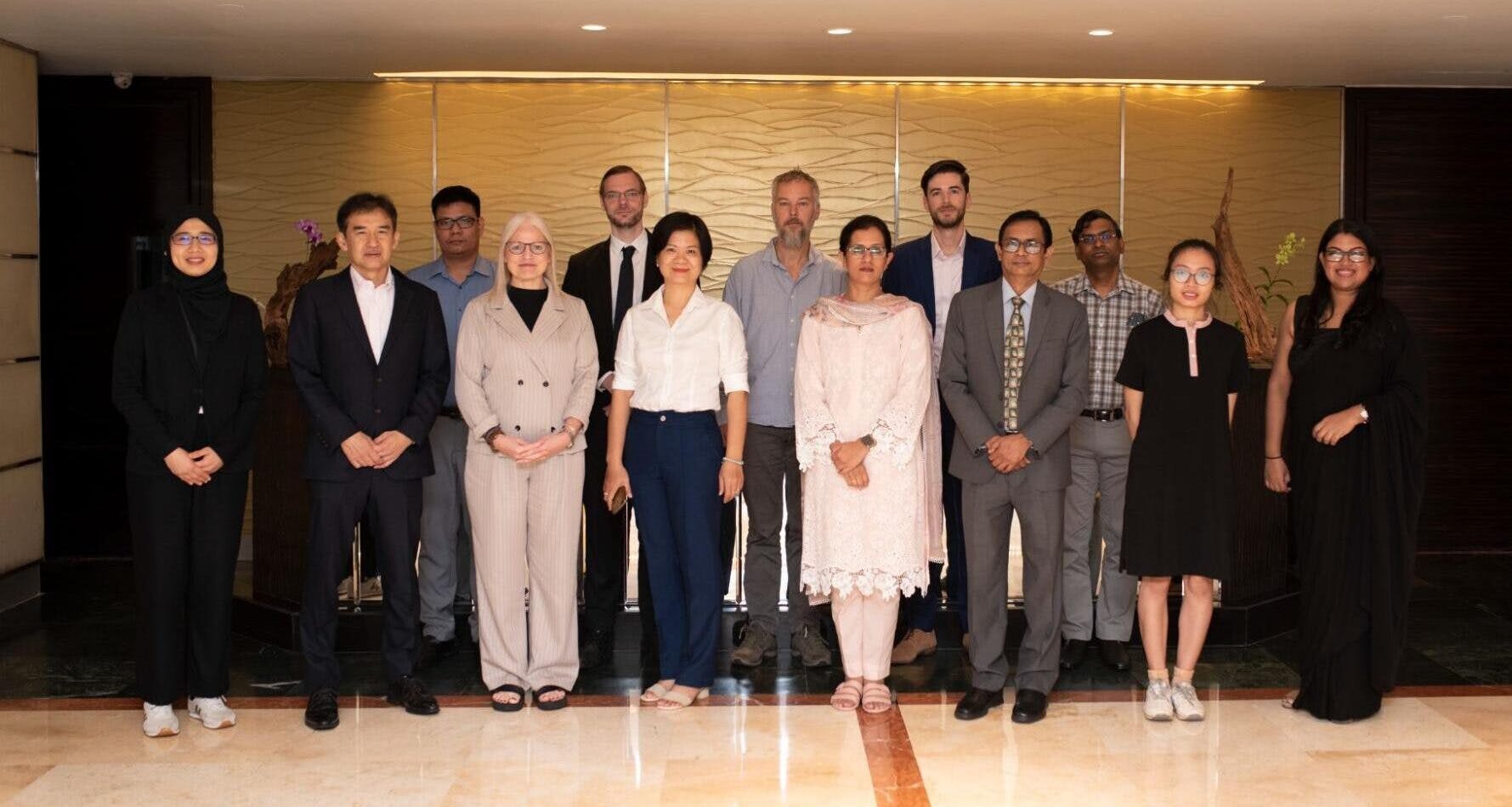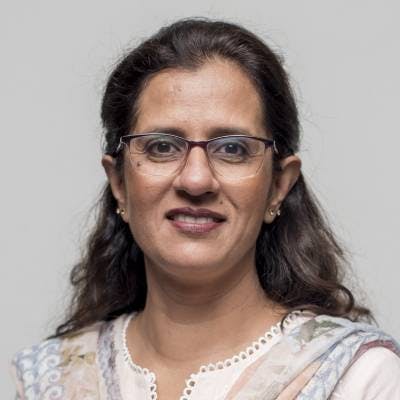Climate Adaptation Framework
At its 18th Intergovernmental Meeting in 2013, APN launched its Climate Adaptation Framework (CAF) with the aims of enhancing science-based adaptation activities of APN developing countries, comprising: regional research activities with a capacity building element; capacity building activities at regional, national and local scales; and joint activities with partner organisations and networks.


APN activities addressing loss and damage
Since the launch of the CAF, APN has supported 14 projects and conducted various activities related to climate adaptation, disaster risk reduction, and loss and damage.
Special publication
With the recommendation that APN continues to produce synthesis materials of the work it conducts under the core programmes and frameworks, a special publication project is targeted explicitly to outputs from the CAF. The joint activity between APN Secretariat and SLYCAN Trust will develop a special publication for the approximately 14 completed APN projects related to climate change adaptation, disaster risk reduction and loss and damage.
The outputs will be especially beneficial for the global agendas of UNFCCC Paris Agreement (PA), the Warsaw International Mechanism (WIM) and the Sendai Framework on Disaster Risk Reduction (SFDRR).

Online virtual contributors’ symposium
As part of this special publication, APN and SLYCAN Trust held an online virtual contributors’ symposium on 30 August 2022.
International writeshop
An international writeshop for the special publication was held from 20-22 October 2022 in Colombo, Sri Lanka.The writeshop, mainly an in-person event, gathered 16 participants from eight countries, including ten APN project leaders.

Contributors
“Research can help articulate the voice of the poor and marginalized. It can help bridge the gap between policy and research for action. For any intervention on building resilience of the vulnerable, data and analysis can help the design and better targeting.”
 Independent expert on climate change
Independent expert on climate change“Non-economic loss and damage research and communication require disambiguation of its meaning and inference for different stakeholders, differentiation of approaches, and disaggregation of societal and environmental costs and opportunities. This 3D approach can drive focused capacity development through effective actions mitigating losses and damages.”

“Loss and damage research is an opportunity to better connect international climate governance processes with people dealing with the impacts of the climate crisis beyond the limits of adaptation measures, and bring vulnerable and marginalized voices to global platforms to demand transformative climate action now.”
 SOAS, University of London
SOAS, University of London“Research will provide a better understanding of the imminent danger posed by climate change to individuals, communities and countries. Proper policy research on the issue will certainly help the government and other actors to take effective measures to deal with the climate emergency situation.”
 Institute of South Asian Studies, NUS
Institute of South Asian Studies, NUS Climate Action Network
Climate Action Network
“Loss and Damage is already happening today and requires solutions now for those suffering the consequences. People-centered, participatory research is needed to integrate the views and values of the most vulnerable people who don’t have a voice in the climate negotiations.”
 UNU-EHS
UNU-EHS“Science and evidence-based tools are key to take actions to avert, minimize and address loss and damage to climate-induced hydro-meteorological extremes. The econometric model (developed under an APN project) could be used as an adaptation tool in the agriculture sector to take proactive actions to minimize potential loss and damage and sector specific planning and development.”
 Asian Disaster Preparedness Center
Asian Disaster Preparedness Center“Research results provide a robust understanding of potential future climate change impacts on infrastructure, and will reduce the risk of loss and damage to infrastructure in the near future.”
 Southern Institute of Water Resources Research (SIWRR), Vietnam
Southern Institute of Water Resources Research (SIWRR), Vietnam“Evidence-based research has provided answers when causes are unknown by identifying gaps and demonstrating consequences, especially in the effort to understand loss and damage. This effort is critical to contributing to forecasting and preparing for future climate change impacts and risks and also improving technology and infrastructure that protects and sustains the environment.”

“Research and evidence cannot reduce loss and damage associated with climate change but research and evidence can strongly consolidate the urgency and needs of addressing climate-induced loss and damage.”
 Vietnam Institute of Meteorology Hydrology and Climate Change; Ministry of Natural Resources and Environment, Vietnam
Vietnam Institute of Meteorology Hydrology and Climate Change; Ministry of Natural Resources and Environment, Vietnam
“Evidence-based research on the linkages between climate adaptation, disaster risk reduction and loss and damage that is codesigned among scientists and stakeholders provides the policy-relevant scientific basis needed for policy solutions that can enhance and scale up action on the ground.”

 UNU-IAS
UNU-IAS SLYCAN Trust
SLYCAN Trust“Loss and Damage from human-induced climate change is a new issue that requires research and knowledge generation to enable responses to be designed appropriately. ”
 ICCCAD
ICCCAD“The implementation of Loss and Damage programmes can only be accelerated if they are based on solid research findings.”
 ICRAF
ICRAF“Findings from research on loss and damage contribute to improved pre- and post-disaster planning.”
 Vietnam Disaster Management Authority
Vietnam Disaster Management Authority“Research will provide more evidence to prove and bring the new concept of loss and damage into decision-making processes. Hence, research helps in better-informed decisions to address climate change issues.”
 Center for environment research, education and development (CERED), Vietnam
Center for environment research, education and development (CERED), Vietnam
Chapters
Hina Lotia
Dr S. V. R. K. Prabhakar, Joy Jacqueline Pereira, Nguyen Van Thang, Juan Pulhin, Chhinh Nyda, Tun Lwin, & Rajib Shaw
Dr S. V. R. K. Prabhakar, Yohei Chiba, Antonio P. Abamo, Md. Atikul Islam, Chandra Sekhar Bahinipati, & Sangam Shrestha
Michael Boyland, Danny Marks, Ham Kimkong, & Agus Nugroho
Dennis Mombauer & Vositha Wijenayake
Dr Kees van der Geest
Dr Senaka Basnayake, Susantha Jayasinghe, & Niladri Gupta
Dr Lam Vu Thanh Noi, Richard T Cooper, Tran Quang Minh, Cao Thi Thu Huong, Spoann Vine, Sath Sitak, Rotchana Intharathirat, & Jaranporn Lertsahakul
Harjeet Singh & Sindra Sharma
Dr Dang Quang Thinh & Le Minh Nhat
Hop T.B. Hoang, Rodel Lasco, Rizaldi Boer, & Nguyen Ninh
